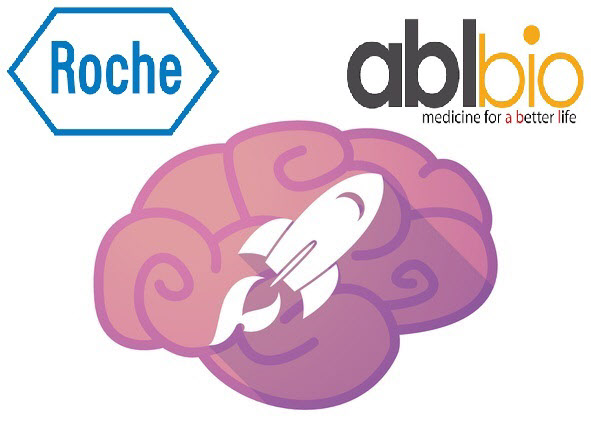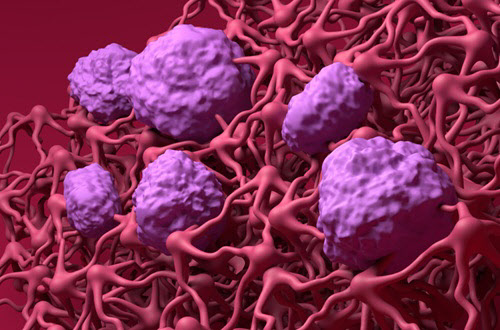What is the current status of the ‘Roche/ABL Bio’ bispecific antibody BBB shuttle platform performance?
That is why interest is focused on companies that have an antibody-based transport platform (shuttle) that can pass the blood-brain barrier (BBB) to develop new drugs for diseases degenerative brain. In Korea ABL Bio (298380)Like Roche, it has acquired its own drug-based shuttle platform and is conducting clinical trials for a new drug for Parkinson’s disease.
According to the pharmaceutical and biopharmaceutical industry on the 3rd, Roche has again targeted Alzheimer’s with a double antibody. Of the nine new bispecific antibody drugs approved so far in major countries, eight have indications for blood cancer. Only Roche’s macular degeneration treatment drug ‘Bavismo’ (ingredient name farisimab) has attracted attention for other indications. Alzheimer’s (dementia) is the disease that Roche focused on to expand the base of its double antibodies.
In April last year, Roche announced that interim results from phase 1/2 clinical trials of trontinemab confirmed the presence of beta amyloid plaques in the brains of 5 out of 8 Alzheimer’s patients treated with the drug disappeared after 12 weeks. Trontinemab is a dual antibody that combines a shuttle antibody that targets the BBB and gantanerumab that targets amyloid beta. There were no cases of cerebral edema, a major side effect of existing Alzheimer’s treatments, in patients receiving trontinemab.
According to the industry, it is known that it will take 6 months to 1 year for the new Alzheimer’s drug ‘Lechembe’ (ingredient name: lecanemab) or ‘Donanemab’ at Eli Lilly, a new drug candidate that has completed phase 3 , to remove amyloid beta. plaques Roche hopes that its trontinemab will be able to surpass the effectiveness of existing products, as it can eliminate substances that cause Alzheimer’s in just 4 months. The BBB shuttle platform that made this possible is attention grabbing.
The BBB normally plays a role in protecting unnecessary proteins from entering the brain. However, when treating patients with degenerative brain diseases, the BBB acts as a barrier that prevents the entry of drugs.
To overcome this, Roche designed a brain delivery platform that uses an antibody that binds to ‘human transferrin receptor 1’ as a BBB shuttle. When the BBB shuttle antibody, a component of trontinemab, binds to human transferase receptor 1, it penetrates the BBB membrane and enters the brain. Then, another component, gantarunemab, targets and attacks beta amyloid plaques.
Last November, Roche published the results of a POC study on the efficacy of trontenemab on the US National Institutes of Health (NIH) medical database ‘Pubmed’. According to the study, the company compared trontinemab and gantarunemab in primates. At this time, trontinemab and gantarunemab were given in doses of 10 mg and 20 mg per kg, respectively.
As a result, it was determined that trontinemab given at half the dose was at least 4 times and up to 18 times more in the primate brain than gantarunemab. This proved the way in which trontinemab, which has increased permeability into the brain, can be effective in eliminating amyloid beta.
A researcher in the field of new depression drug development said, “Gantanerumab failed in phase 3 because it did not meet the cognitive function improvement index,” and added, “Roche must have been confident in its effectiveness with that he researched for 20 years from the initial discovery of this substance to clinical trials.” “Yes,” he said. He went on to explain, “Ultimately, we believed that by simply increasing the delivery rate of the brain, we could show an effect in terms of improving cognitive function beyond that Lechembe, and we seem to be reborn as a bispecific antibody called trontinemab.
In Korea, ABL Bio discovered ‘ABL-301’, a new dual-drug candidate for Parkinson’s disease that incorporates its own BBB shuttle platform. The company attracted attention in 2022 by signing a technology transfer deal worth 1.3 trillion won with France’s Sanofi for global development rights for ABL-301. ABL-301 is currently undergoing phase 1 clinical trials in the United States and other countries led by Sanofi, and according to ABL Bio, preliminary clinical trial results are expected to be available in the second half of the year this.
ABL Bio has acquired an antibody targeting ‘insulin-like growth receptor 1’ (IGF1R), which has a high level of expression on the surface of the BBB, using the BBB shuttle. The company calls this BBB shuttle the ‘Grabbody-B’ platform.
According to the results of a preclinical study on primates announced by ABL Bio in 2021, the brain delivery efficiency of ABL-301 via Grabbody-B was analyzed to be approximately 13 times higher than a general monoclonal antibody without BBB shuttle antibody.
An official in the dual antibody new drug development industry said, “There is no data directly comparing Roche’s brain permeability and ABL’s BBB Shuttle platform with the same antibody. However, both companies present preclinical results that increase the delivery rate to the brain more than 10 times,” he said, “How efficacy of Roche’s BBB shuttle in humans was confirmed through interim results phase 1/2 clinical trials for trontinemab, for now, Roche is the leading company in this field.” “You could say we are standing on the front line,” he said.
He continued, “If the BBB shuttle platform proves effective in clinical trials and a new drug in use receives accelerated approval, the platform has the potential to be expanded to all areas of degenerative brain disease.” marketing proof of the platform,” he said.
2024-05-06 22:19:02
#current #status #RocheABL #Bio #bispecific #antibody #BBB #shuttle #platform #performance


